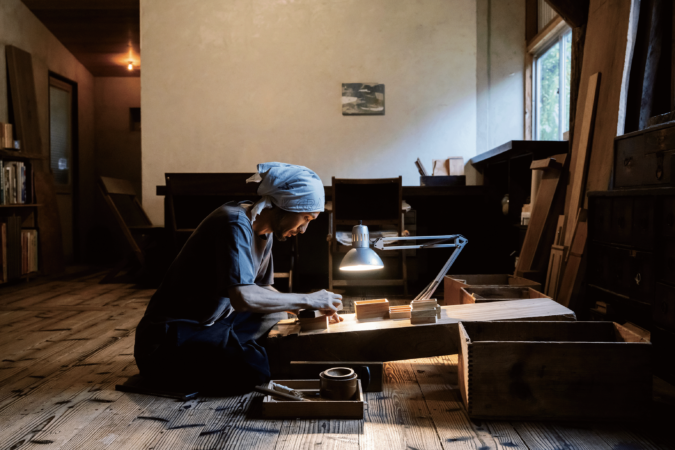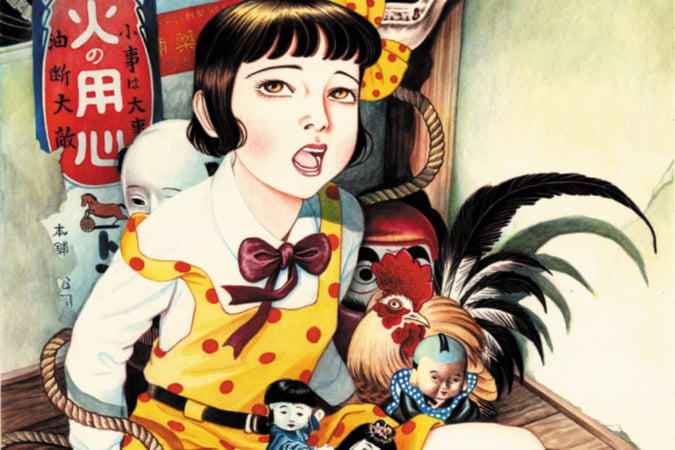Japanese Designer Seiran Tsuno Advocates Paranormal Fashion
This designer also works as a psychiatric nurse and creates pieces intended to communicate with another dimension.
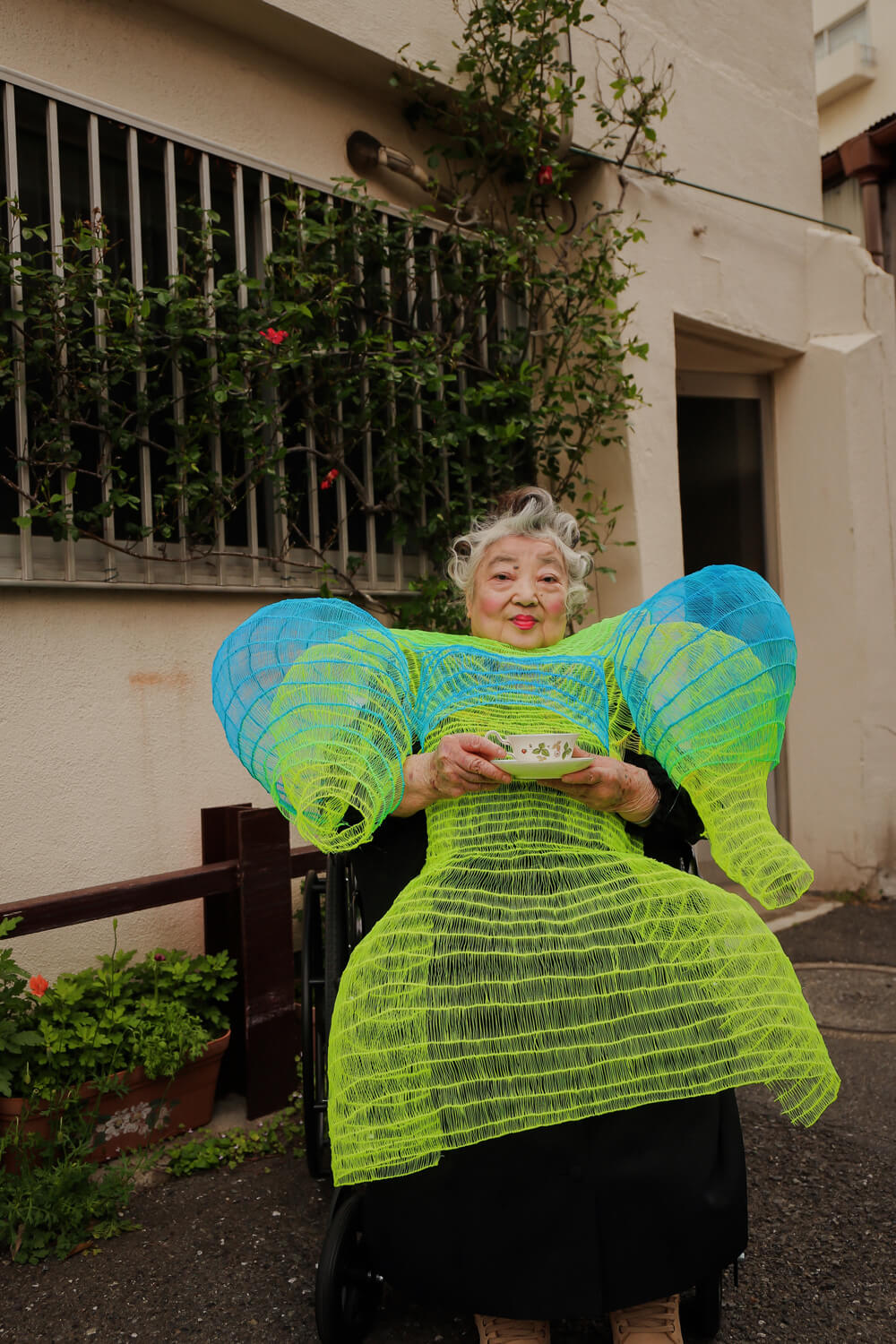
© Sho Makishima
Designer Seiran Tsuno, born in 1991, has a somewhat unusual vision of fashion, which she has made her trademark. Clothing is ‘a means of communicating with an invisible world’, she declares in an interview.
Having worked as a psychiatric nurse since 2013, the designer began studying fashion in 2016 at the Coconogacco Fashion School in Tokyo. She quickly developed her own vocabulary, creating pieces which, she explains, aim to ‘pay homage to people who believe in the existence of an invisible world’.
The fantastic at the heart of the creative process
Very soon, the fantastic became the driving force behind her pieces. For Seiran Tsuno, dresses lend themselves to science fiction designs. Her creations, made using 3D pens and printers, capture the attention thanks to their fluorescent colours and their extremely careful finish.
For one of her collections, Seiran Tsuno wished to ‘capture Japanese spirits’. Unlike typical garments, her creations are not put on over the head, but instead placed onto the body. Her inventiveness can also be seen in her advertising campaigns, in which she features her grandmother, for example, who broke her legs just before the shoot took place.
In 2017, the designer was a finalist in the ITS Platform Contest, an Italian competition that rewards young talent in the fashion world.
More information about Seiran Tsuno’s latest collections can be found on her Instagram account.
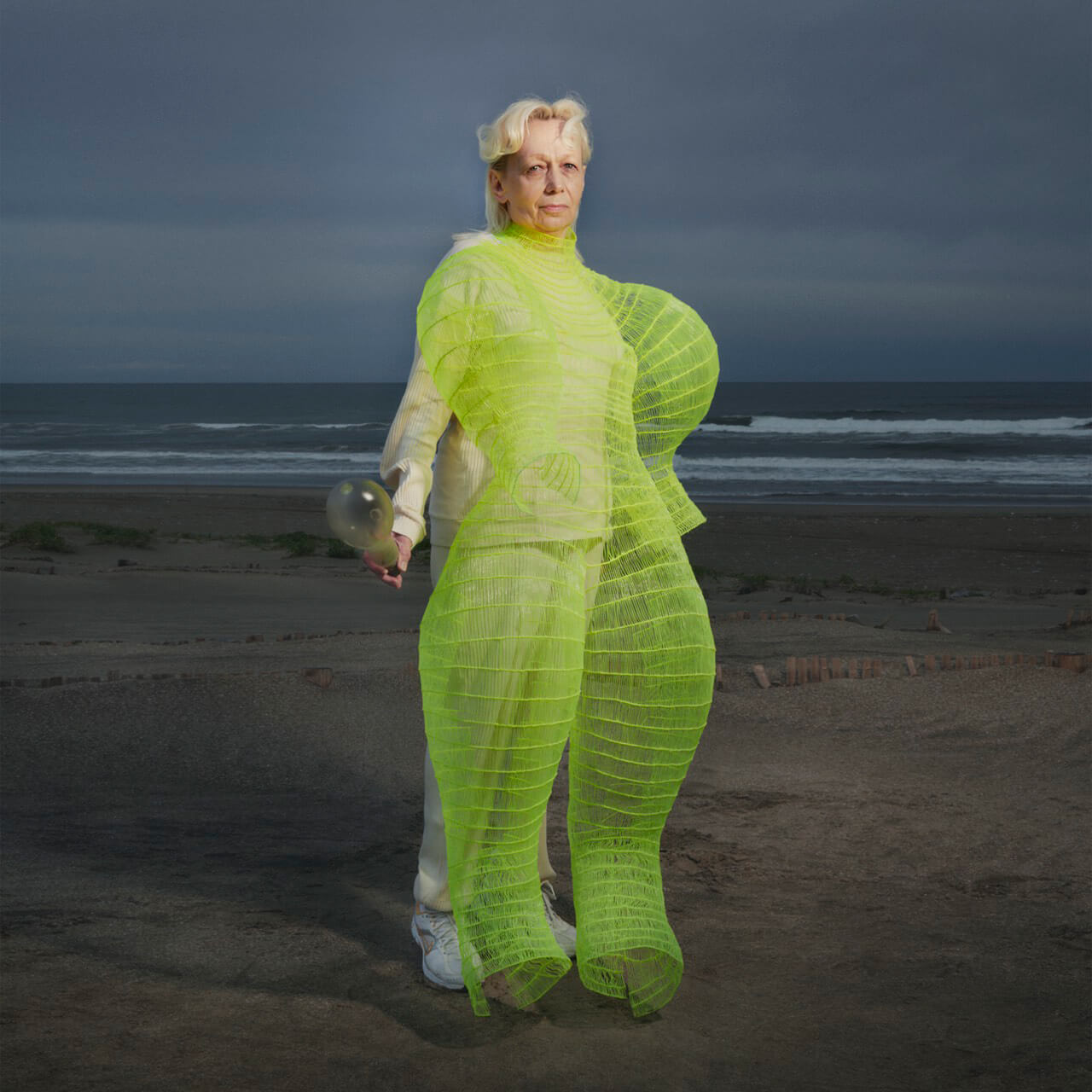
© Jun Yasui
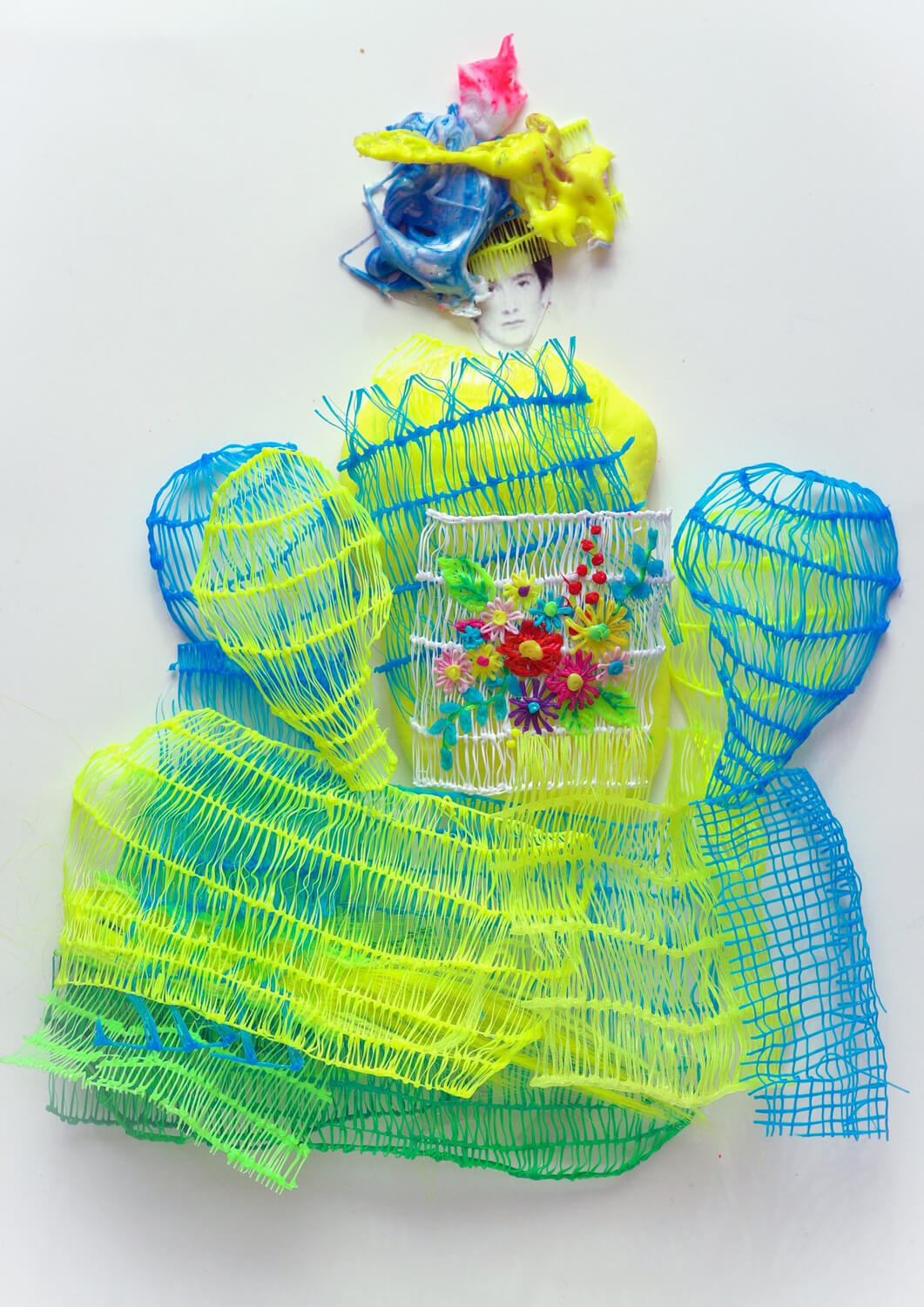
© Seiran Tsuno
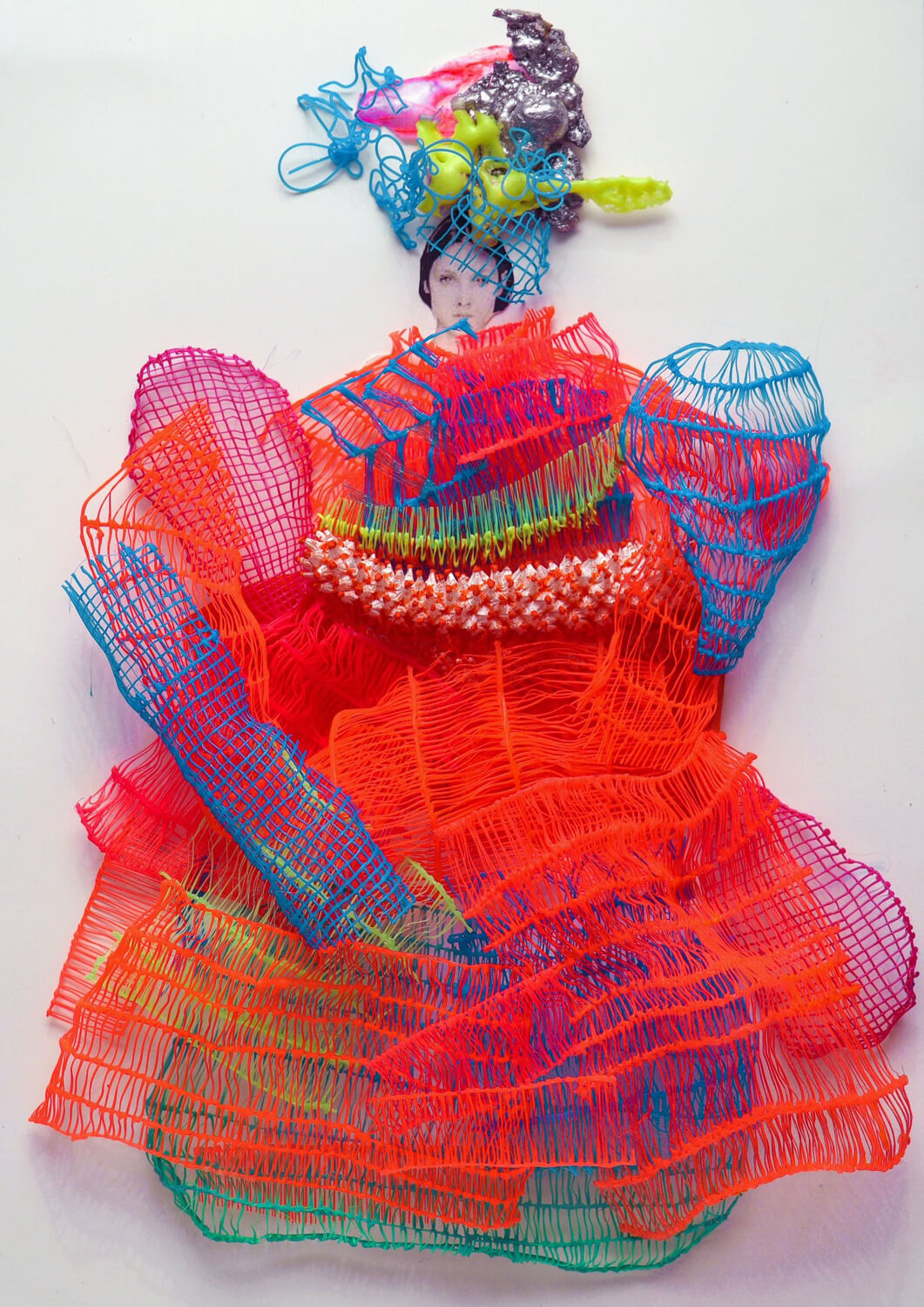
© Seiran Tsuno
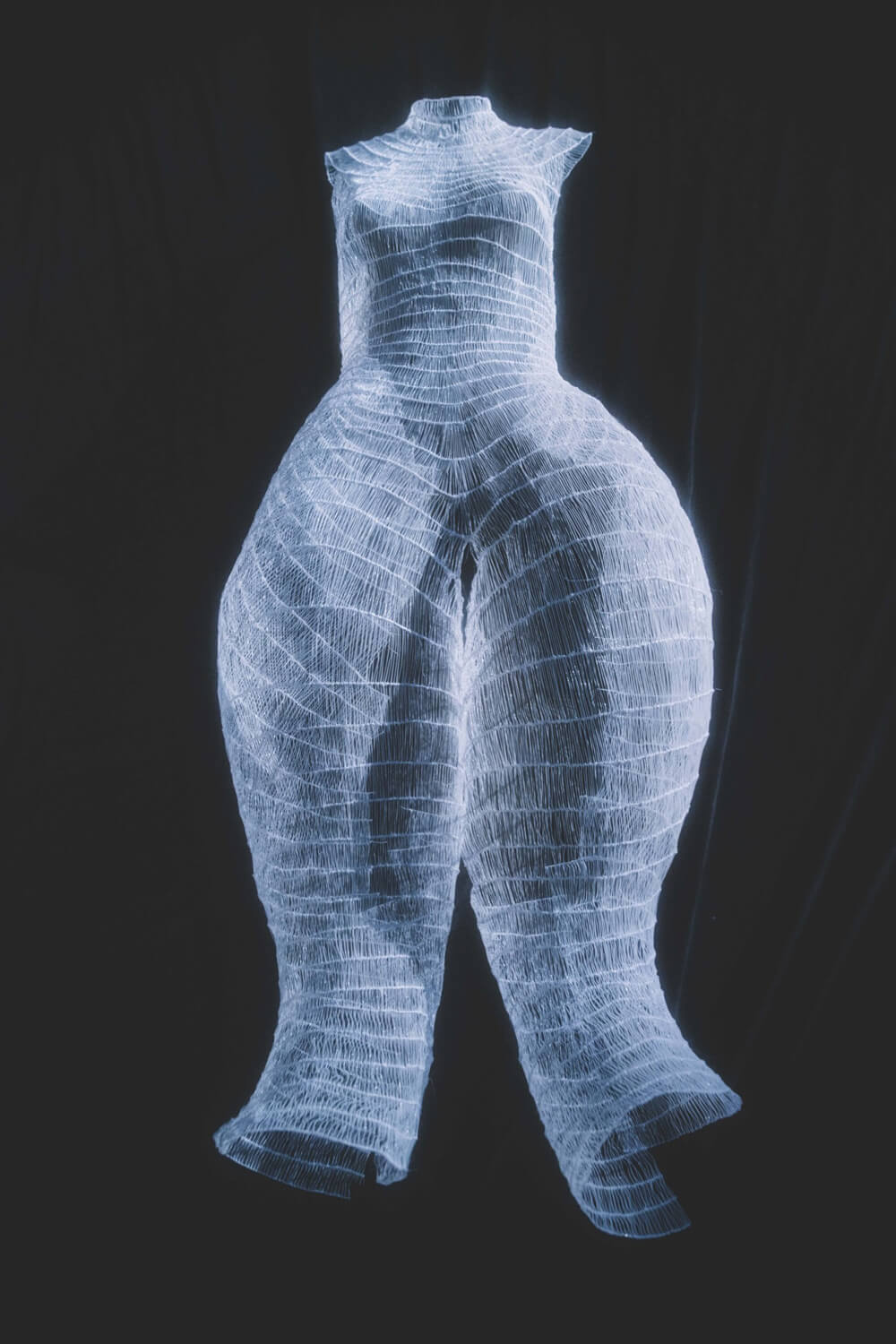
© Toki

© Toki
TRENDING
-
A Craft Practice Rooted in Okinawa’s Nature and Everyday Landscapes
Ai and Hiroyuki Tokeshi work with Okinawan wood, an exacting material, drawing on a local tradition of woodworking and lacquerware.

-
Hiroshi Nagai's Sun-Drenched Pop Paintings, an Ode to California
Through his colourful pieces, the painter transports viewers to the west coast of America as it was in the 1950s.

-
The Tattoos that Marked the Criminals of the Edo Period
Traditional tattoos were strong signifiers; murderers had head tattoos, while theft might result in an arm tattoo.

-
‘Shojo Tsubaki’, A Freakshow
Underground manga artist Suehiro Maruo’s infamous masterpiece canonised a historical fascination towards the erotic-grotesque genre.

-
‘Seeing People My Age or Younger Succeed Makes Me Uneasy’
In ‘A Non-Conformist’s Guide to Surviving Society’, author Satoshi Ogawa shares his strategies for navigating everyday life.

